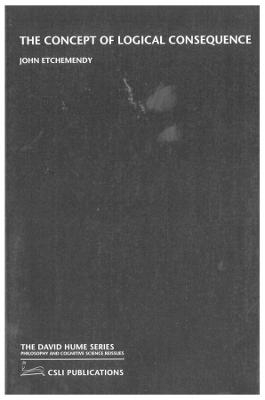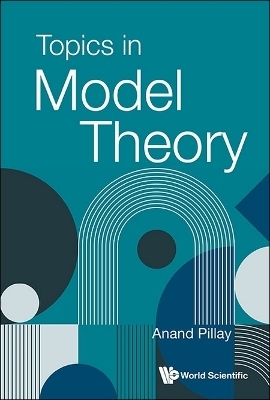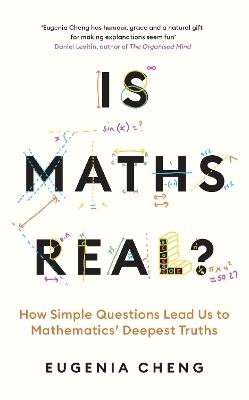
The Concept of Logical Consequence
Seiten
1999
Centre for the Study of Language & Information (Verlag)
978-1-57586-194-4 (ISBN)
Centre for the Study of Language & Information (Verlag)
978-1-57586-194-4 (ISBN)
- Titel z.Zt. nicht lieferbar
- Portofrei ab CHF 40
- Auch auf Rechnung
- Artikel merken
The aim of this book is to correct a common misunderstanding of a technique of mathematical logic.
The intuitive concept of consequence, the notion that one sentence follows logically from another, has driven the study of logic for more than two thousand years. But logic has moved forward dramatically in the past century - largely as a result of bringing mathematics to bear on the field. The infusion of mathematically precise definitions and techniques has turned a field dominated by homely admonitions into one characterized by illuminating theorems. The aim of this book is to correct a common misunderstanding of one of the most widely used techniques of mathematical logic. Central to the received view is Tarski's model-theoretic analysis of logical consequence, which Etchemendy argues is fundamentally mistaken. Save indirectly, by those who question classical principles, this standard analysis has gone unchallenged for half a century, with the result that it has come to seem a piece of common knowledge. Etchemendy's critique will shatter the complacency.
The intuitive concept of consequence, the notion that one sentence follows logically from another, has driven the study of logic for more than two thousand years. But logic has moved forward dramatically in the past century - largely as a result of bringing mathematics to bear on the field. The infusion of mathematically precise definitions and techniques has turned a field dominated by homely admonitions into one characterized by illuminating theorems. The aim of this book is to correct a common misunderstanding of one of the most widely used techniques of mathematical logic. Central to the received view is Tarski's model-theoretic analysis of logical consequence, which Etchemendy argues is fundamentally mistaken. Save indirectly, by those who question classical principles, this standard analysis has gone unchallenged for half a century, with the result that it has come to seem a piece of common knowledge. Etchemendy's critique will shatter the complacency.
John Etchemendy is professor of philosophy and symbolic systems at Stanford University and a former director of the Center for the Study of Language and Information (CSLI).
Introduction; 1. Representational semantics; 2. Tarski on logical truth; 3. Interpretational semantics; 4. Interpreting quantifiers; 5. Modality and consequence; 6. The reduction principle; 7. Substantive generalizations; 8. The myth of the logical constant; 9. Logic from the metatheory; 10. Completeness and soundness; Conclusion; Notes; Bibliography; Index.
| Erscheint lt. Verlag | 30.6.1999 |
|---|---|
| Reihe/Serie | The David Hume Series |
| Verlagsort | Stanford |
| Sprache | englisch |
| Maße | 152 x 228 mm |
| Gewicht | 260 g |
| Themenwelt | Mathematik / Informatik ► Mathematik ► Logik / Mengenlehre |
| ISBN-10 | 1-57586-194-1 / 1575861941 |
| ISBN-13 | 978-1-57586-194-4 / 9781575861944 |
| Zustand | Neuware |
| Haben Sie eine Frage zum Produkt? |
Mehr entdecken
aus dem Bereich
aus dem Bereich
Buch | Softcover (2024)
World Scientific Publishing Co Pte Ltd (Verlag)
CHF 43,60
what we have that machines don't
Buch | Softcover (2024)
Profile Books Ltd (Verlag)
CHF 19,15
how simple questions lead us to mathematics’ deepest truths
Buch | Softcover (2024)
Profile Books Ltd (Verlag)
CHF 19,15


